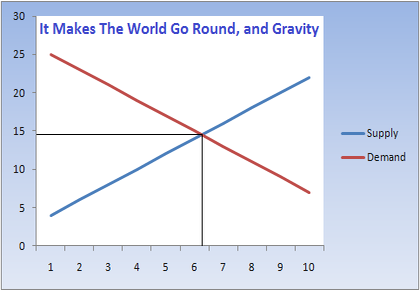Brevity, a concept I’m not particularly familiar with but sometimes less is more. I’ve spent several weeks trying to write a masterpiece article about how to fix the economy by devising some sort of magical leverage eraser or the economic equivalent of the reset button I loved to hit on my Nintendo when my Mario game didn’t go perfectly. Alas, the effort was fruitless; several ideas and pages scribbled with equations to no avail and a truly terrifying amount of debt and slowing of the velocity of money. The only end game I could conclude was that someone had to take a huge hit and since no government, firm, or individual (sorry guys I was like $10 short, I checked the couch cushions and everything) has the balance sheet to sustain such a hit the economy seemed doomed to anemic growth, the destruction of the American Dream for a generation, and reduction in spending on arts, music, and innovation that will have set us back at least 100 years. I was thinking that I should have been born in the early seventies so that my early career would be in the modern renaissance of the 1990s rather than the modern dark ages we seem to be on the precipice of.
But this can’t be where the story ends, right? Common’ it’s the Olympics, a time for the world to gather together to celebrate hard work and drop our jaws in utter awe of the feats that the great people can pull together to achieve; surely there must be some five ringed inspiration. Well due to the newly minted responsibility of managing some family money I’ve been giving a lot of thought to crowd funding recently and I think that startups might be the answer. As I said in Go West Young Man, Go West people have to become more self sufficient economically, we have become complacent expecting large corporations to provide a living for us but I think that won’t be the case for quite some time to come. Corporations used to provide pensions which, as I mentioned in The New Labor Paradigm, are crippling many corporations financially but the market has shifted to a personal savings model. The problem is that many employers aren’t contributing much to the accounts or vesting takes quite some time; moreover, and especially now with the new healthcare legislation, firms are reducing health benefits and shifting more of the costs to employees. These practices extend beyond the HR department to business practices at large; charge more and provide less. I recently ordered an exercise machine and when it arrived a part was broken. I called the customer service number put on hold for five minutes then I get to talk to this absolute donkey who doesn’t profusely apologize to me, rather he tells me I should buy a parts warranty for 4 years; after telling him no for the 10th time he informs me that my part should arrive in 7 – 10 business days. At this point I’m not happy so I respond that his insistence that I buy a parts warranty makes me question the quality of their products and that I’m not entirely sure that I wouldn’t be better off returning the item and that I didn’t care if he had to hop on a plane himself but I’d have that part in my hand when I returned home from work the following day or else; seventeen hours, another ten minutes on hold, and a supervisor later and I had my part. Corporations are providing ever less and expecting ever more that model has to break; new firms can be more innovative, provide better service, and innovation. While startups can’t magically erase leverage it can change the dynamics of the economy from a stagnant broken one to a dynamic growing one. These new firms can innovate increasing our knowledge base and allowing for long-term growth, they can more evenly distribute wealth from corporations hoarding cash to those deploying it increasing the velocity of money, they can provide cheaper and better alternatives driving other expenses down while freeing up more money for deleveraging, and they can generate economic growth that improves consumer sentiment simultaneously increasing consumption, investment, and the tax base. At the end of the day crowd funding can fix the liquidity trickle and allow new business to form that in turn can fix underlying economic problems that the current system just can’t. I’ve long held the belief, as I’ve written several times before, that the unprecedented growth of the 1990s was a confluence of events that expanded the economy by increasing productivity and information exchange with computers, having infrastructure in place for worldwide interconnectivity, and relative global piece to open up a truly global economy sourcing more efficient and cheaper production and billions of additional consumers. Now the economy may be able to grow not with infrastructure structural shifts but with business model structural shifts from large multinational corporations to innovative nimble startups.
Brevity, this is basically as short as my thought processes get and if you don’t like reading it just imagine how I feel living it.

{ 0 comments… add one now }
You must log in to post a comment.